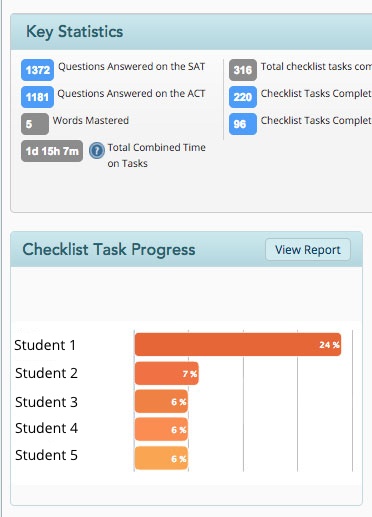Challenges for Schools Using Khan Academy for Test Prep

Recently, a school asked us why they should continue to pay for our school-based program when they can use the free program through the College Board’s partnership with the Khan Academy. For schools hoping to use the Khan Academy as the go-to option for test preparation, the issues are many.
 #1 – No ACT preparation through the Khan Academy.
#1 – No ACT preparation through the Khan Academy.
And, unfortunately, there never will be: the competition between the College Board and the ACT is intense. The last thing students want is to have to set up two accounts: one to prepare for the SAT and one to prepare for the ACT. With Method Test Prep, students get ACT and SAT prep under one program, so this is never an issue. It is in students’ best interest to at least become familiar with both exams. Colleges will accept either SAT or ACT scores, so we’re giving students two chances to be successful.
#2 – No live, human customer support for schools.
Like any large organizations, schools need support for the programs they use. Guidance counselors, administrators, and teachers will have questions about the most effective way to use a program. Khan Academy will not be providing schools with customer support. While Khan Academy may host public webinars from time to time and might post help videos, schools will not be able to call with questions or schedule a webinar for one or more teachers to jump on at a convenient time.
#3 – Weak explanations that leave students discouraged.
For many questions on Khan Academy’s SAT program, when a student gets a question wrong, the video explanation that plays does not explain that particular question––rather, it is a video in that general area of math or English. Obviously, students find this frustrating; when they struggle with a particular question, they expect the video explanation to review that question, not just the broadly relevant topic. In addition, there is very little in the way of test-taking strategy in the explanations. Videos just explain how to do a sample question but don’t give much in the way of “whenever you see a question like this on the SAT, here is what to look for.” This is the kind of strategy most valuable to students serious about improving their scores.
#4 – No current teacher reporting.
The College Board/Khan Academy says teacher reporting is coming, but as of now, there is none. So for schools and teachers looking to use the Khan Academy’s SAT program with classes, there is no way to track who in the class is completing the work, how the class is performing as a whole, etc.
#5 – No endpoint in the Khan Academy’s SAT program. Instead, a frustrating “endless loop.”
The Khan Academy’s SAT program serves up a task for students to complete. When students complete that task, the program serves up another task, and another, and another. I have worked with many students who are frustrated by this model because they don’t feel like they are given a good sense of how much of the program they have worked through.
#6 – Any partnership with the College Board is concerning.
As much as many of us believe in the Khan Academy and its mission, the decision to partner with the College Board is concerning. The College Board has frustrated schools for years, and its list of missteps is lengthy. Most recently, it had promised PSAT scores would be back by December of this past year, but then didn’t get these scores to schools until after the holiday break in January. Plans that had been made by schools and families for PSAT giveback nights and test preparation had to be rescheduled.
There is a longer list of other issues with the Khan Academy’s SAT program including questionable strategies for answering questions, reading lessons that are long and not particularly helpful, etc. Schools that decide to “go with” the Khan Academy’s SAT program for this year will find that, while they are paying nothing, they will get nothing. The majority of students will not use the program; those who try the program will become frustrated quickly. Teachers will not be supported with any kind of live customer support, nor will they have access to any kind of reporting. As a result, teachers will not use the program with their classes. Many schools who try Khan Academy this year will go looking for alternative solutions sooner rather than later.


